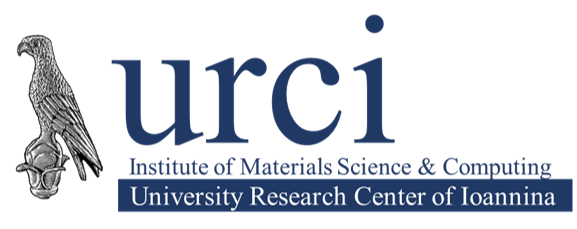Courses
-
Lab 1: Scanning Probe Microscopy for Material Science
Scanning Probe Microscopy (SPM) is one of the most powerful tools for sample characterization on the nanoscale. In this course, we will introduce the working principle of Scanning Probe Microscopy and its most important operation modes. Based on this understanding, we will discuss both strength and limitation of SPM for imaging of surface topography and possible pitfalls in image acquisition and interpretation. The possibilities offered by SPM for mechanical testing on the micro- and nanoscale will be another topic. The lectures will be complemented by on site SPM demonstration with selected samples.
-
Lab 2: Fluorescence correlation spectroscopy: basic principles and applications
Fluorescence correlation spectroscopy (FCS) is a very sensitive and selective technique for studying the mobility of small fluorescent molecules, macromolecules or nanoparticles in various environments. It is commonly used to measure diffusion coefficients, hydrodynamic radii, and local concentrations of the studied species and thus investigate conformational changes, mutual interactions or aggregation/degradation processes. Furthermore, by monitoring the mobility of well-defined fluorescent tracers FCS can provide information about the surrounding environment, which can range from a polymer melt to a living cell. In this lecture, I will introduce the basic principle of the FCS technique and give examples for its applications in the fields of soft matter science and drug nanocarrier development.
-
Lab 3: Thermal analysis techniques in characterization of materials
In this course basic thermal properties and thermal transitions of materials will be discussed. The most important thermal analysis and calorimetry techniques in materials characterization will be presented, including Thermogravimetric Analysis (TGA), Differential Thermal Analysis (DTA), Differential Scanning Calorimetry (DSC), Modulated Temperature DSC (MDSC), and Fast Scan Calorimetry (FSC). Examples of thermal characterization of industrially important polymers such as poly(ethylene terephthalate) (PET), polymer matrix composites, liquid crystalline materials, metals and alloys, inorganics, pharmaceutics and foods will be analyzed. In the laboratory part, standard DSC and MDSC will be used for the study of thermal transitions of PET and liquid crystalline polymers.
-
Lab 4: Dielectric Spectroscopy in Materials Science
The origin of polarization (electronic, ionic, dipolar, surface/interfacial). Response in a static electric field (Debye, Onsager, Kirkwood/Fröhlich). Response in ac electric field. Impedance measurements, dielectric function, electric modulus and conductivity representations. Dielectric relaxation vs retardation. Distribution of relaxation times (spatial and temporal heterogeneity). Dielectric permittivity and its temperature dependence in the vicinity of phase transitions. Specific examples include: (a) Relaxation in glass-formers; temperature and pressure effects. (b) Ionic conductivity in polymer electrolytes. (c) Relaxation in hydrogen-bonded systems (e.g. water). (d) Dielectric spectroscopy in relation to other techniques (rheology, AFM and local dielectric spectroscopy). (e) Laboratory course on selected materials (liquid crystals, polymers, etc.).
-
Lab 5: Wetting of Interfaces
Liquid surfaces, surface tension, capillary forces. Thermodynamics of interfaces, condensation. Contact angle and wetting: Young equation, dynamic wetting, hydrophobicity, superhydrophobicity. Slippery surfaces. Experimental methods: interference microscopy, confocal microscopy. Lab course: Measurement of surface tension with the pendant drop method, measurement of liquid-liquid interfacial tension, contact angles on hydrophilic and hydophobic solids.
-
Lab 6: Electron Microscopy
Introduction to Microscopy and Electron Microscopy (TEM, SEM, AFM, SPM), Transmission Electron Microscopy (TEM), Sample Preparation for TEM Studies, Microphase Separation, Theories on Microphase Separation (Analysis), Equilibrium Morphologies, Linear and Non-Linear Diblock and Triblock Copolymers and Terpolymers in Bulk, Composite Materials (polymer matrix and carbon related structures), Examples.
-
Lab 7: Rheology of materials
Rheology is an important field for materials characterization and processing. The course offers a basic introduction to rheological experiments diagnostics and property alternation.
In the first part, the main concepts (strain, stress, rate of deformation) and classes of materials amenable to rheometric studies will in introduced. The different types of measurements
and material functions will be presented and explained, along with the pertinent standard and advanced instrumentation. Emphasis will be placed on the interpretation of rheological signals,
especially solid-to-liquid transitions. The second part will comprise selected examples from a wide range of materials involving polymers, colloids, emulsions, gels, glasses, foams and pastes. Finally, open challenges and current trends will be outlined.
Announcements
2021 Instructors

